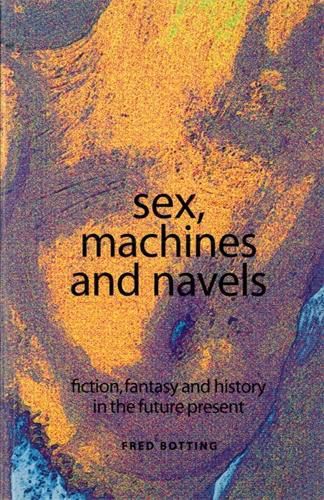Readings Newsletter
Become a Readings Member to make your shopping experience even easier.
Sign in or sign up for free!
You’re not far away from qualifying for FREE standard shipping within Australia
You’ve qualified for FREE standard shipping within Australia
The cart is loading…






This work offers a critical re-reading of fictions of humanity, history, technology and postmodern culture. Taking psychoanalysis into cyberspace, the book develops an theoretical perspective on the relationship with bodies and machines to offer a focused re-examination of the notions of desire, metaphor, sexed identity and difference and the process of technological transformation. The book inravels the navel in a detailed revision of Lacanian psychoanalysis in association with postmodern theory, feminism and deconstruction. Problematizing the easy conjucntion of human bodies and inhuman technology, the navel opens onto networks of desire, history, culture and machines. Linked to the unconcious, to jokes and dreams, navels appear on the bodies of replicants and in the technological matrix, a stranged excess in a future imagined in terms of corporeal meat or posthuman machine. The book closely examines postmodern and cyberpunk texts (by Thomas Pynchon, Graham Swift, Julian Barnes, William Gibson and Rudy Rucker) alongside readings of contemporary cultural critics and theorists.
$9.00 standard shipping within Australia
FREE standard shipping within Australia for orders over $100.00
Express & International shipping calculated at checkout
This work offers a critical re-reading of fictions of humanity, history, technology and postmodern culture. Taking psychoanalysis into cyberspace, the book develops an theoretical perspective on the relationship with bodies and machines to offer a focused re-examination of the notions of desire, metaphor, sexed identity and difference and the process of technological transformation. The book inravels the navel in a detailed revision of Lacanian psychoanalysis in association with postmodern theory, feminism and deconstruction. Problematizing the easy conjucntion of human bodies and inhuman technology, the navel opens onto networks of desire, history, culture and machines. Linked to the unconcious, to jokes and dreams, navels appear on the bodies of replicants and in the technological matrix, a stranged excess in a future imagined in terms of corporeal meat or posthuman machine. The book closely examines postmodern and cyberpunk texts (by Thomas Pynchon, Graham Swift, Julian Barnes, William Gibson and Rudy Rucker) alongside readings of contemporary cultural critics and theorists.